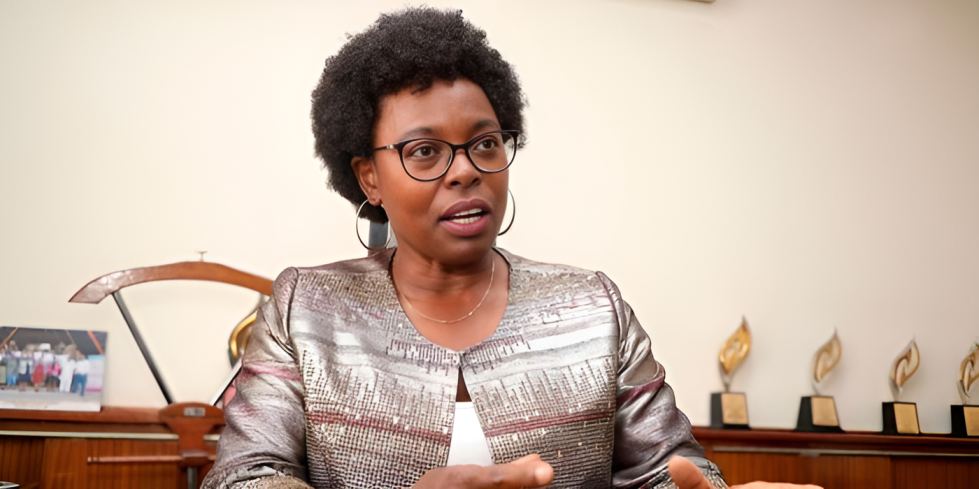Pending bills climb to Sh684.26. billion as Controller of budget warns of strain on SMEs

According to the report, Sh511.75 billion is owed by the national government, while counties account for Sh172.51 billion.
Pending bills owed by both the national and county governments have climbed to Sh684.26 billion as of March 31, 2025, raising concern over the financial strain placed on businesses, particularly small and medium-sized enterprises.
In a new report, the Controller of Budget, Margaret Nyakang’o, warned that the ballooning backlog continues to disrupt business operations, delay payments to suppliers and threaten the financial stability of key sectors of the economy.
According to the report, Sh511.75 billion is owed by the national government, while counties account for Sh172.51 billion. Nyakang’o called on the National Treasury to urgently fast-track the verification and clearance of the bills.
“To address the challenges, the Controller of Budget recommends that the National Treasury fast-track the verification and settlement of pending bills and adopt more realistic revenue projections to reduce reliance on borrowing. There is a need for improved fiscal planning and enhanced revenue collection, particularly from Appropriations-in-Aid,” reads the report.
The report was released just days after Treasury Cabinet Secretary John Mbadi told Parliament that Sh229 billion had been verified and recommended for settlement.
While presenting the 2025/26 budget estimates, Mbadi revealed that the Pending Bills Verification Committee had received 65,625 claims worth Sh571.6 billion.
Of these, 57 per cent or Sh522 billion, had already been processed.
“The government remains committed to resolving the long-standing issues of pending bills dating back to 2005 as part of a broader effort to strengthen public resource management and restore public confidence in government processes,” he said.
The national government’s share of the pending bills includes Sh421.63 billion from State Corporations and Sh90.12 billion from Ministries, Departments and Agencies (MDAs).
The report further shows that Sh39.75 million has been classified as ineligible for payment. Although the total national government bills have dropped slightly from Sh516.27 billion in June 2024 to Sh511.75 billion in March 2025, the burden remains high.
State Corporations recorded an increase in their debt, from Sh405.28 billion in the previous financial year to Sh421.63 billion.
MDAs also saw their pending bills rise to Sh90.12 billion, up from Sh81.51 billion in the same period last year.
The bulk of the pending payments by State Corporations relate to contractors and development projects (Sh259.67 billion or 62 per cent), followed by consumables and general supplies at nine per cent.
The pending bills also include unremitted statutory deductions and pension arrears owed to the Local Authorities Pension Trust.
For MDAs, the report indicates that Sh67.13 billion (74 per cent) of their debt is for recurrent expenses, while Sh22.99 billion (26 per cent) is related to development.
In the nine months leading up to March 2025, MDAs managed to reduce their total bills by Sh46.32 billion, split between Sh33.60 billion in recurrent and Sh12.72 billion in development expenditure.
The report also highlights the MDAs with the highest bills: the Executive Office of the President through the Nairobi Metropolitan Service owes Sh13.5 billion; the State Department for Public Service, particularly the National Youth Service, owes SH14.3 billion; the Ministry of Defence owes Sh6.9 billion; and the State Department for Medical Services owes Ksh4.3 billion.
At the county level, the pending bills of Sh172.51 billion consist of Ksh139.88 billion for recurrent costs and Sh32.63 billion for development projects. Nyakang’o criticised county governments for failing to honour their own plans to settle debts, despite being required to submit payment strategies at the beginning of each financial year.
“Several County Governments did not follow their plans to pay pending bills,” the report notes.
The Controller of Budget warned that the continued accumulation of debt is causing cash flow problems for businesses.
“This forces such businesses to either scale back operations, lay off workers, or even shut down operations. It also leads to high government costs of doing business due to the accumulation of interest charges and penalties on unpaid invoices, and it erodes trust between the government and the private sector,” reads the report.
